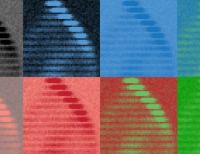ETH Zurich also collaborates closely with partners in the implementation of the programme and with a view to the subsequent Master's degree course - for example with the University of Zurich, the University of Basel and the Università della Svizzera italiana as well as with the Cantonal Hospital Baden, the University Hospital Zurich, the Schulthess Klinik and other institutions from the healthcare sector.
AI and interprofessional collaboration in the degree programme
Since its first implementation, ETH Zurich has continuously adapted the Bachelor's degree programme in Human Medicine to new developments and needs. Typical more recent teaching modules in the programme relate, for example, to the application of artificial intelligence (AI) in medicine or courses with other medical and healthcare professions.
In joint teaching with nursing, midwifery or pharmacy students, ETH medical students are prepared at an early stage to cooperate with other professional groups in healthcare and to orientate their medical practice towards the needs of patients. The study of medical technology and AI also enables them to use new medical technologies in treatment later on as doctors.
"Molecular biology basics, medical technology and artificial intelligence are becoming increasingly important for medicine," says Christian Wolfrum, ETH Vice President Research, "with medical training at ETH, we are enabling future doctors to use the latest findings from research and innovation for patients even more than before."
ETH medical students value their education
100 students each receive a place in the ETH Bachelor of Human Medicine programme, with the proportion of women among new students averaging over 58 per cent since 2017, reaching a peak of 67 per cent in 2022. "From the very beginning, the Bachelor's degree programme in Human Medicine has combined research-oriented basic training with practice-oriented teamwork and the acquisition of clinical skills," says ETH Rector Günther Dissertori, "so I am all the more pleased that this focus on training is very well received by the students."














